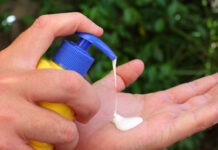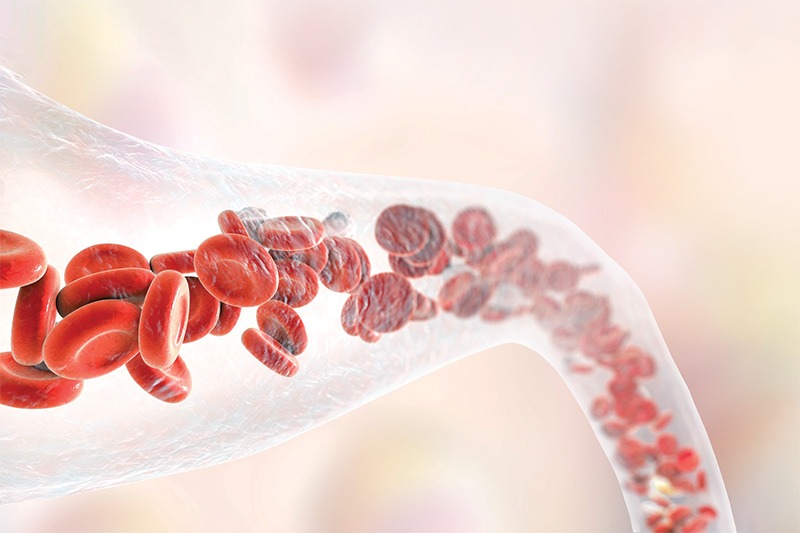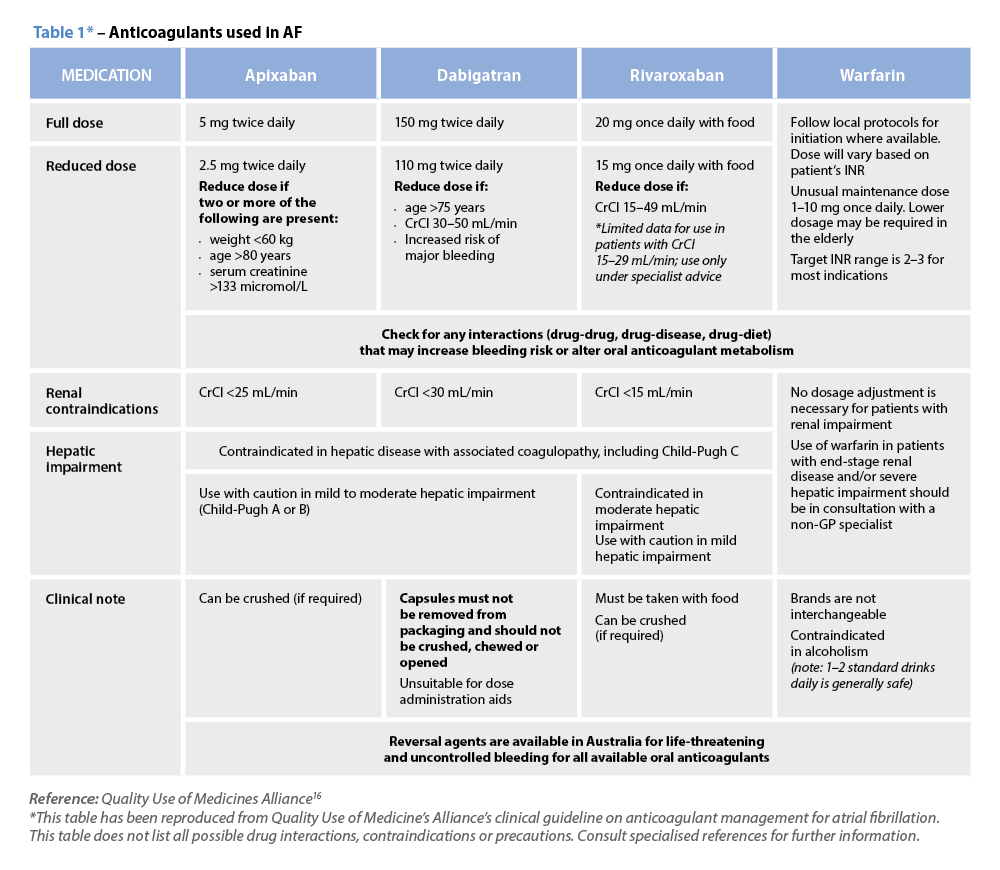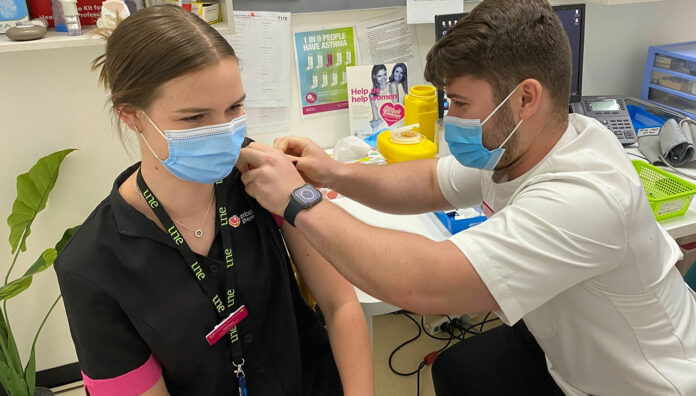As a new intern year begins, budding pharmacists around Australia have joined the COVID-19 vaccination effort.
Okhan Atasoy MPS has only been an intern pharmacist at Priceline Maryborough in Victoria for 4 weeks. But he has already vaccinated almost 200 patients against COVID-19.
Before beginning his intern year, he worked at a COVID-19 vaccination hub, preparing doses for vaccinators. But he said there was a big difference between preparation and administration.
‘Day two of the internship I was thrown into vaccinating,’ he told Australian Pharmacist. ‘I’m fortunate that all the patients have been so nice to me.’
When Mr Atasoy first began vaccinating, having his PSA Intern Training Program (ITP) preceptor on site eased his nerves.
‘My preceptor said, “This is Okhan, he’s new”,’ he said.
‘Most of the time, people felt comfortable with an intern administering their vaccine and that allowed me to feel confident in myself.’
| Helpful PSA webinars and resources: |
Perfecting vaccination techniques
When administering his first vaccines, Mr Atasoy said his preceptor shared some techniques that helped him hone his skills.
On the first day of vaccinating, Mr Atasoy said he subconsciously recapped the syringe after administration then disposed of it, increasing the risk of a needle stick injury.
“Being so used to following the aseptic technique at the vaccine hub, I had this habit after [vaccinating] the first few patients,” he said.
‘[Because] my preceptor was there to supervise me, we reviewed it and she told me about protocol to ensure it never happened again.’
Practice, supervision and being exposed to many patients from the start is what helped Mr Atasoy become a confident vaccinator.
‘Now I can reassure my patients, because they will tell me they’re nervous, but in the end, the important part is I’m not nervous,’ he said. ‘And that makes them feel confident.’
Top tips for interns
Before administering the COVID-19 vaccine, Mr Atasoy recommends becoming well-acquainted with needles.
‘If you haven’t prepared vials before, perhaps start [there],’ he said. ‘Prior to working at the hub, I barely saw any needles, but I’ve seen thousands now.’
If you don’t feel confident, Mr Atasoy said it’s important to have your preceptor on hand until you can administer the vaccine independently.
‘It took me about eight to nine patients,’ he said. ‘The first five [vaccinations] require supervision, but I needed a few more just to make sure that I was good enough to take off those training wheels and go solo.’
Mr Atasoy encourages other interns to join the vaccine effort.
‘Having an extra pair of hands reduces the burden on vaccine hubs and GP clinics,’ he said.
‘It gives us greater independence as interns, and in the future you will have more qualifications.’
ITP trainer and assessor advice for supporting new vaccinators
For pharmacists who want to bring their interns and newly registered pharmacists on board the COVID-19 vaccination effort, Emily Thorp MPS, trainer and assessor for PSA’s ITP in Tasmania, recommends ensuring they understand the process from the start.
‘The most important thing is to make sure that everyone knows the processes that are required – from when the person books in, to when they turn up for their appointment – and that they’re still maintaining social distancing and COVID-19 safe behaviours,’ she said.
Ms Thorp also suggests keeping up with all the COVID-19 updates and available training modules.
Webinars on the different vaccine brands can help pharmacists new to vaccinating become familiar with the different adverse effects patients may present with.
‘They’re inevitably going to have a lot of questions,’ Ms Thorp said. ‘So it’s a great opportunity for interns to become confident in having those conversations.’
As interns must have a supervising immunising pharmacist present, Kerri Barwick MPS, PSA Manager Trainer and Assessor, Queensland said workplaces need to consider how to structure their workflow to enable this.
‘Training pharmacy assistants to aid the triage of patients waiting is also really important,’ she said.
The Pharmacist in Charge can assist with building confidence in newly registered pharmacists.
‘Processes that provide clear roles and responsibilities give pharmacists a structured approach to provide this service and guidance on what to do when things don’t go according to plan,’ Ms Barwick said.
It’s also key to set up your vaccination workspace to allow a new cohort of pharmacists to succeed.
‘Think about the small things, for example, where your sharps bin is so you don’t need to pass used needles over yourself, or even having steps printed and laminated,’ she said.
Drawing and handling vaccines for the first time can be tricky, and it can be easy to forget a step – especially when there is so much going on in the pharmacy.
‘Having these steps available to refer to can help,’ Ms Barwick added.




 ‘We’re increasingly seeing incidents where alert fatigue has been identified as a contributing factor. It’s not that there wasn’t an alert in place, but that it was lost among the other alerts the clinician saw,’ Prof Baysari says.
‘We’re increasingly seeing incidents where alert fatigue has been identified as a contributing factor. It’s not that there wasn’t an alert in place, but that it was lost among the other alerts the clinician saw,’ Prof Baysari says.


 Beyond the arrhythmia, AF often signals broader pathological processes that impair cardiac function and reduce quality of life and life expectancy.5 Many of these conditions are closely linked to social determinants of health, disproportionately affecting populations with socioeconomic disadvantage. Effective AF management requires addressing both the arrhythmia and its underlying contributors.4
Beyond the arrhythmia, AF often signals broader pathological processes that impair cardiac function and reduce quality of life and life expectancy.5 Many of these conditions are closely linked to social determinants of health, disproportionately affecting populations with socioeconomic disadvantage. Effective AF management requires addressing both the arrhythmia and its underlying contributors.4  C – Comorbidity and risk factor management
C – Comorbidity and risk factor management Warfarin
Warfarin




